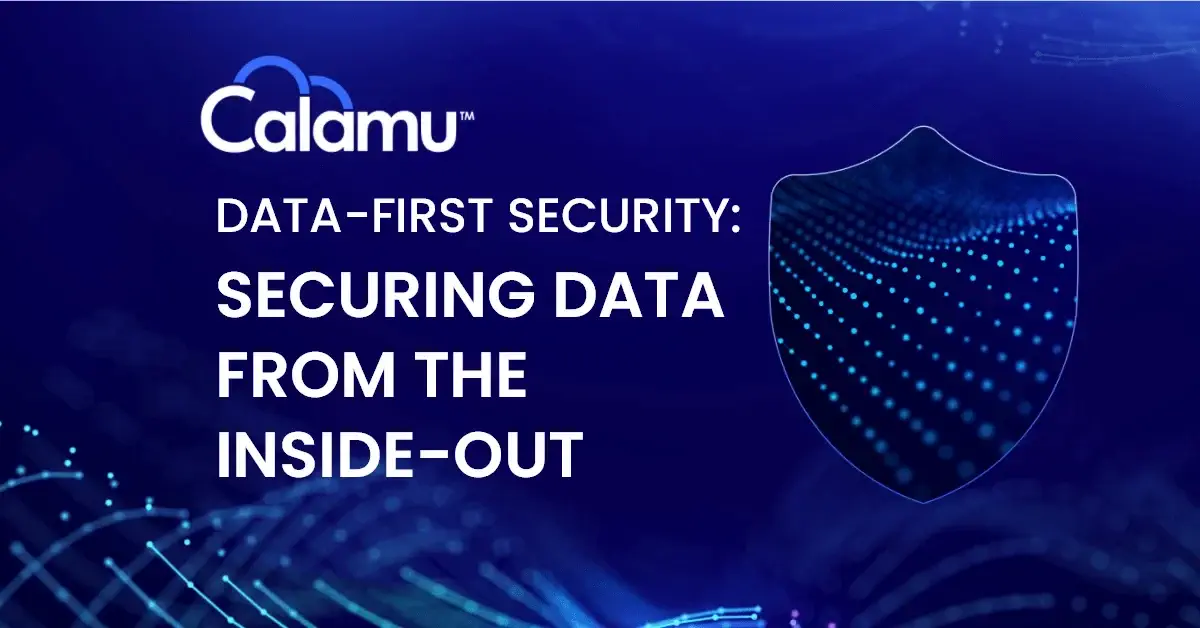
A data-first security approach focuses on providing protection right onto the data itself to withstand and absorb data breaches, data theft attempts and other cyber attacks. For businesses adopting a Zero Trust approach, Calamu Protect is an ideal solution because it ensures only authorized users or applications are accessing sensitive data.
Calamu Protect supports data at-rest and in-motion including many different types of structured and unstructured file types.
MFA, or multi-factor authentication, is a critical element of good cyber hygiene and is required when using Calamu Protect. In addition, the platform can be easily configured to require additional MFA challenges when accessing an organization’s most critical data.
Calamu Protect is designed for ease of implementation and can be deployed quickly with minimal resources. To learn more about deploying in your specific environment, request a live demo.
Performance gains are achieved through horizontal scaling and parallel processing. Even with the advanced backend technology that enables data-first security, the experience is transparent and any changes in latency are typically unnoticeable.
Calamu is a Next-Gen Data Protection-as-a-Service, also known as Next-Gen DPaaS or NGDP, which is a dramatic evolution to traditional data protection methods designed to further bolster layered defense strategies. Calamu’s multi-patented technology is necessary for companies that have valuable, highly sensitive information stored electronically, whether locally on-premises or in the cloud, and are at risk of a data breach. Companies susceptible to cyber attacks that lead to data breaches such as a ransomware attack can reap the benefits of Calamu by dramatically reducing any downtime, data loss, or reputational damage.
A data harbor is a collection of geographically and physically separated storage locations used to store data that has been fragmented into valueless pieces whereby no single location contains all of the fragments for the data to be reconstructed into its original form. Calamu pioneered a multi-patented technology that uses data harbors to provide superior protection to data.
Calamu Protect supports data at rest and while it is in motion including many different types of structured and unstructured file types. There are too many file types to list but if you have valuable data and it is saved electronically, Calamu most likely supports it.
Encryption is a great tool for securing data and it has been around for a long time but it has its limitations; the data still lives in a single location and has the ability to be decrypted with a single key. Furthermore, encryption is often only applied to data that is rarely used or not in use such as data backups or computers not being used (such as full disk encryption). Once a system is authorized (logged into), the data is decrypted and all available in a single location. With Calamu, data is protected by fragmenting files and distributing them such that no single storage location has what is required to reconstitute a file, and therefore no single attack vector. Each of the fragments is encrypted with a different key, so there is no single point of failure if a user gains access to a single key.
Currently, Calamu supports Amazon Web Services (AWS), Microsoft 365, Microsoft Azure, Google Cloud Platform (GCP), Wasabi and on-premises such as a local drive or a network drive. Calamu is always adding additional features and functionality, to discuss your specific environment request a live demo.
In addition to security, Calamu was designed with scalability and ease of implementation in mind. Calamu provides 100% API coverage and has scripts available to make deployment a breeze. In addition, Calamu supports Docker and Kubernetes for containerized deployment.
The inherent method Calamu Protect uses to safeguard data greatly simplifies any compliance or regulatory requirements. Data security and privacy regulations such as GDPR, CPRA, HIPAA, PCI-DSS, NY SHIELD Act, SOC II, SOX, and GLBA have strict requirements on how data must be protected, and Calamu will help. In fact, the Schrems II decision based on GDPR has extremely stringent requirements. This is discussed in detail, along with how Calamu solves several related use cases in a white paper available here.
Calamu maintains several built-in redundancies to maintain full resiliency so that data is always available to authenticated users only. If a storage location becomes unavailable, fragments can be retrieved from other healthy locations throughout the data harbor in order to reconstitute the file. Calamu will then automatically self-heal the “bad” location to a new, healthy location, bringing the data harbor back to full resiliency.


